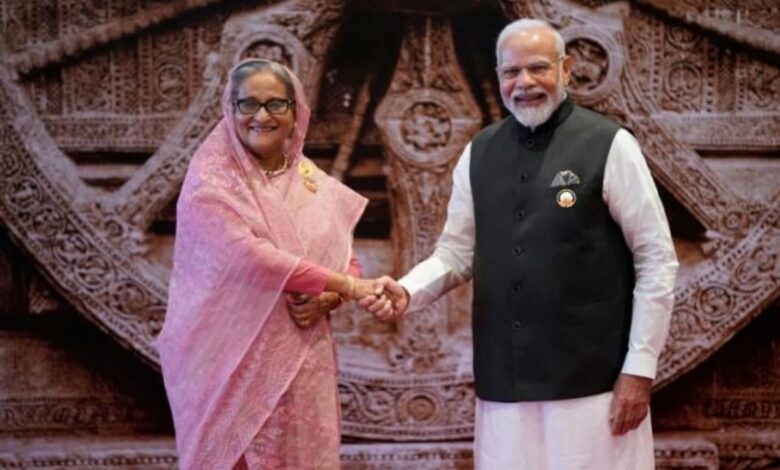India faces diplomatic complications over ousted Bangladeshi leader


India faces diplomatic complications over ousted Bangladeshi leader
- Bangladeshi students demanding India’s return to face trial for the killing of protesters during the revolt.
- Protests from Hindu activist groups loosely affiliated with Modi’s party have sparked protests.
- Bangladesh’s interim government has not publicly addressed Hasina’s refuge in India with New Delhi.
Four weeks after ex-premier Sheikh Hasina fled Bangladesh by helicopter during a student-led revolution, analysts say she has become a diplomatic headache for her hosts in India. Hasina’s iron-fisted rule ended last month when protesters marched on her palace in Dhaka, following 15 years marked by rights abuses and opposition crackdowns.
Bangladeshi students who led the uprising are demanding that India, her biggest benefactor before her ouster, return Sheikh Hasina to face trial for the killing of protesters during the revolt. However, sending the 76-year-old back risks undermining India’s standing with its other South Asian neighbors, where it is engaged in a fierce battle for influence with China.
“India is not going to want to extradite her to Bangladesh,” said Thomas Kean of the conflict resolution think-tank International Crisis Group.
“The message that would send to other leaders in the region who are close to New Delhi would not be a very positive one… that ultimately, India will not protect you,” he told the news.
Last year, New Delhi’s preferred presidential candidate in the Maldives lost to a rival who quickly aligned the strategically located luxury tourism destination with Beijing. With Hasina’s ouster, India lost its closest ally in the region. Those who suffered under Hasina’s rule in Bangladesh now openly resent India for the abuses committed by her government.
That hostility has simmered through megaphone diplomacy from Hindu-nationalist Indian Prime Minister Narendra Modi, targeting Bangladesh’s caretaker administration. Modi has pledged support for the new government led by 84-year-old Nobel Peace Prize laureate Muhammad Yunus, who replaced Hasina. However, Modi, who has emphasized championing the Hindu faith as a key aspect of his tenure, has also repeatedly urged Yunus’s administration to safeguard Bangladesh’s Hindu religious minority.
Hasina’s Awami League was seen as more protective of Bangladesh’s Hindu minority compared to the Bangladesh Nationalist Party (BNP). Modi used his annual Independence Day address from atop the 17th-century Red Fort to suggest that Bangladeshi Hindus were in danger, and he later raised the issue with US President Joe Biden.
In the chaos following Hasina’s departure, some Bangladeshi Hindus and Hindu temples were targeted in attacks that were condemned by both student leaders and the interim government. However, pro-government Indian news channels later reported wildly exaggerated accounts of the violence, which sparked protests from Hindu activist groups loosely affiliated with Modi’s party. Fakhrul Islam Alamgir, a top leader of the BNP, stated that India had placed “all its fruit in one basket” by supporting Hasina and was now struggling to reverse its position.
“The people of Bangladesh want a good relationship with India, but not at the cost of their interests,” Alamgir, one of thousands of BNP members arrested during Hasina’s tenure, told the news.
“The attitude of India unfortunately is not conducive to creating confidence.”
Diplomatic issue:
In the atmosphere of distrust, when deadly floods swept through both countries in August, some Bangladeshis blamed India for the resulting deaths. Although Bangladesh’s interim government has not publicly addressed Hasina’s refuge in India with New Delhi—her last official location being a military air base near the capital—Dhaka has revoked her diplomatic passport, preventing her from traveling further.
The countries have a bilateral extradition treaty, first signed in 2013, that would allow for her return to face a criminal trial.
A clause in the treaty, however, says extradition might be refused if the offense is “political.”
India’s former ambassador to Bangladesh, Pinak Ranjan Chakravarty, stated that the bilateral relationship is too important for Dhaka to jeopardize by demanding Hasina’s return.
“Any mature government will realize that making an issue out of Hasina staying in India is not going to give them any benefits,” he told the news.
Source link
